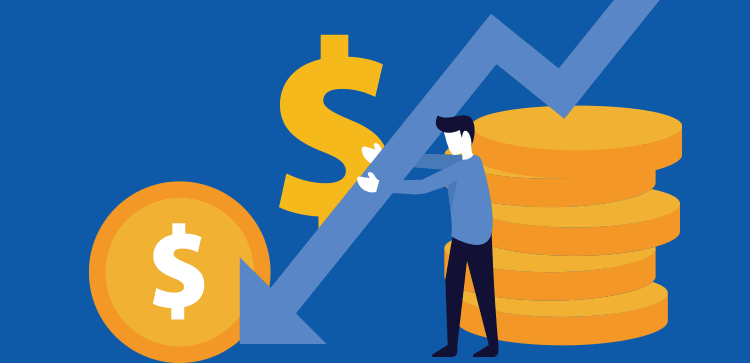Introduction
Commodity brokers play a vital part in enabling trading; regardless of whether a trade is conducted over the phone or online, having a commodities broker is necessary to ensure that it is carried out effectively. A person who executes trades in commodities on behalf of their customers is frequently referred to as a "commodity broker." It is also possible to use this term to refer to a brokerage firm that deals with commodity trades. To comply with the requirements for registration, brokerage businesses are classified as either introducing brokers (IB) or futures commission merchants (FCM) (FCM). The phrase "related persons" refers to specific individuals (AP).
Commodity Brokers and Commission Rates
The following is some information about the commodity broker and the commission rates:

Full-Service Broker Commission
Making a profit is the primary objective of a commodity broker. Make sure, however, that the money they are paying you isn't just going toward paying commissions; rather, it is receiving sound advice and recommendations. If you are a very active trader and you pay $80 in commissions for each round turn, it is improbable that your account will generate a profit.
Negotiating Commission Rates
Commission rates are an important consideration for many novice traders when selecting a commodity broker. Beyond the compensation rate offered to the broker, the business of commodities futures encompasses much more than simply that aspect. One of the primary considerations you should make when selecting a broker for commodities is whether or not you believe the broker will increase the profitability of your account.
Active vs. Seldom Trader Commissions
When looking for a full-service commodity broker to execute trades and provide suggestions, it is important to use common sense. However, an active trader who pays a considerable amount in commissions every month should ensure that the broker is prepared to invest the time necessary to service the account appropriately. This is because active traders pay more in commissions than less active traders.
The Time to Change Brokers
In commodities brokers, one frequently gets what one pays for. If your broker is giving you a decent return on your investment, you might not want to upset the boat because, in this industry, people frequently get what they pay for.
Comparing Broker Commission Rates
Since the advent of computerized trading, the commission rates for trading commodities have significantly reduced. In the early 2000s, many bargain brokers charged more than $50 for a round-turn, defined as a transaction consisting of a buy followed by a sale. As a result of the shift from traditional trading to electronic trading, discount brokers started providing commissions for less than $10 each round-turn.
Commissions on Futures
Futures contracts have rates paid out per contract rather than per order. A transaction involving 100 contracts is one hundred times more expensive than a transaction involving a single contract. You are responsible for making all the decisions and carrying them out using an electronic broker. When it comes to commissions, they have the most competitive rates available.
Negotiating Commission Rates
There are a lot of new traders that will select a broker based on the rates. However, trading in futures contracts for commodities entails a great deal more than just the rate that is paid to the broker. The extent to which you believe a broker will contribute to an increase in the profitability of your account should be the primary consideration in selecting one. When it comes to assisting you in reaching your trading goals in the futures markets, you should have the impression that the broker will be a reliable partner.
To clear their deals with their respective Futures Commission Merchant, brokerage firms must pay fees (FCM). Your broker will receive remuneration as a percentage of the commissions charged to customers. Most of the time, the clearing charge is deducted directly from the top of their compensation. If you anticipate getting a rate of thirty dollars, the broker is probably making less than ten dollars on each trade.
The Time to Change Brokers
If you haven't been making money with your broker owing to their suggestions, you always have the option to bargain for a reduction in the commissions you have to pay. But if you're consistently losing money, it might be time to consider looking elsewhere. If your broker is giving you a decent return on your investment, it's possible that you won't want to upset the apple cart. In many cases, you get exactly what you pay for. Finding trustworthy brokers might be challenging. It is always better to pay greater commissions to those who earn you money than to take a chance with an unproven and untested broker. Paying higher commissions to those who make you money is always better.

Conclusion
The volatility of a portfolio could be reduced by holding commodities. Because the climate, political climate, and global production can all affect the returns of commodities, there is a low historical correlation between commodities and traditional assets. As a consequence, the returns on commodities might be able to assist in mitigating the volatility of a diverse portfolio. Since the advent of computerized trading, commission fees for purchasing and selling commodities have significantly decreased.
In the 1990s, many commodity brokers levied more than $150 per round-turn fee, which refers to a transaction in which both a buyer and a seller. Around 2005, full-service fees began a steady drop, resulting in today's normal range of $30 to $80 each round-turn. Commissions on futures and commissions on round-turns are the two types of available commissions. Regarding futures commissions, the payment is made per contract and not per order. As a result, the cost of completing a transaction involving one hundred contracts is one hundred times that of completing one contract.
watch next


